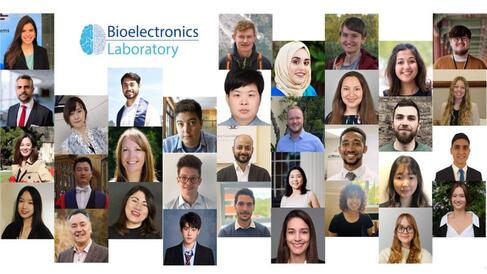People

We are an interdisciplinary group of scientists, engineers and clinicians interested in interfacing electronics with living systems. Our aim is to understand the fundamental processes that take place at the abiotic/biotic interface and to develop better tools for healthcare.
See our Leadership team, Research Associates, Graduate Students, Research Assistants, Undergraduates, Visitors, and our Project Coordinator/Group Administrator.
